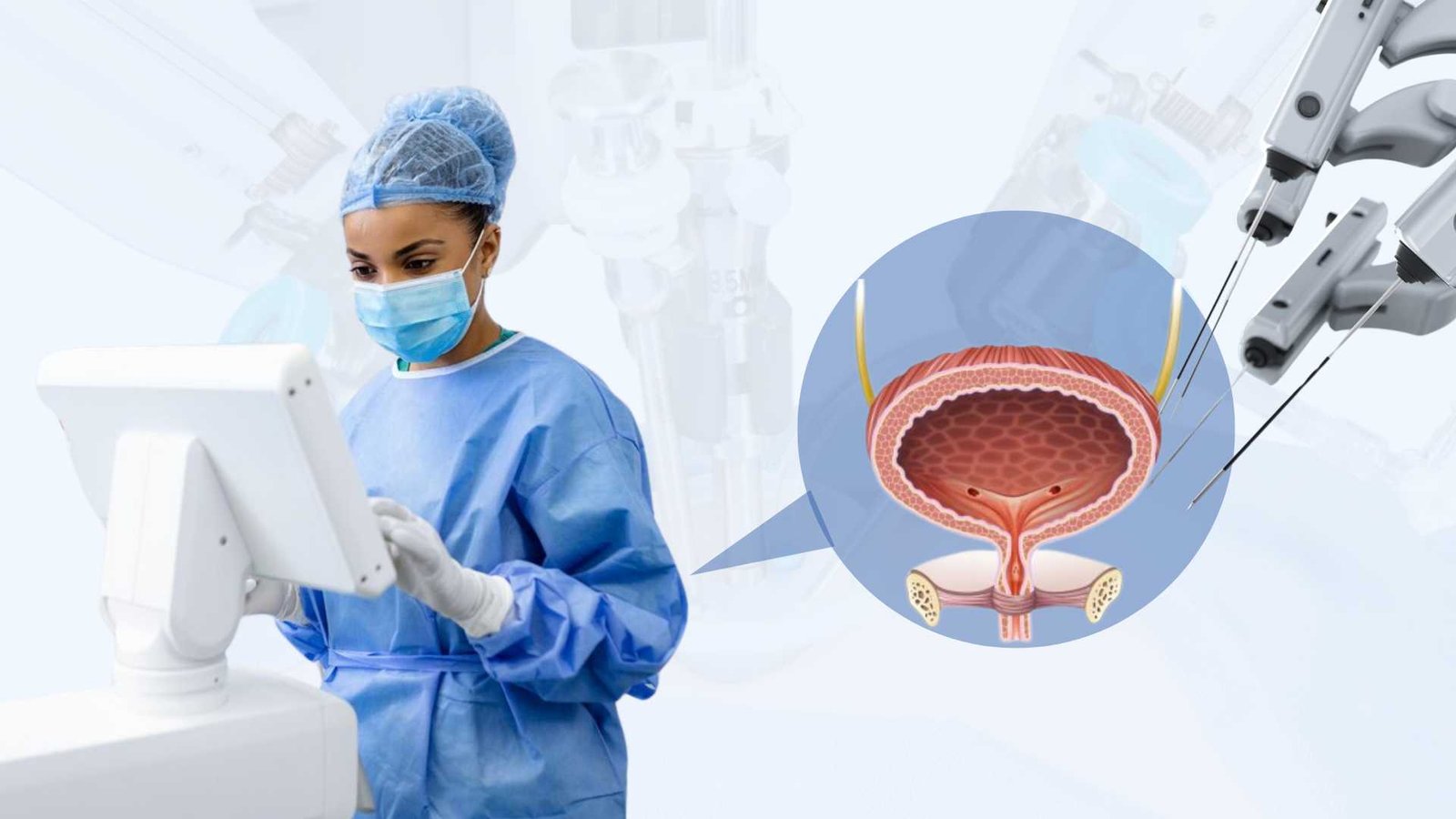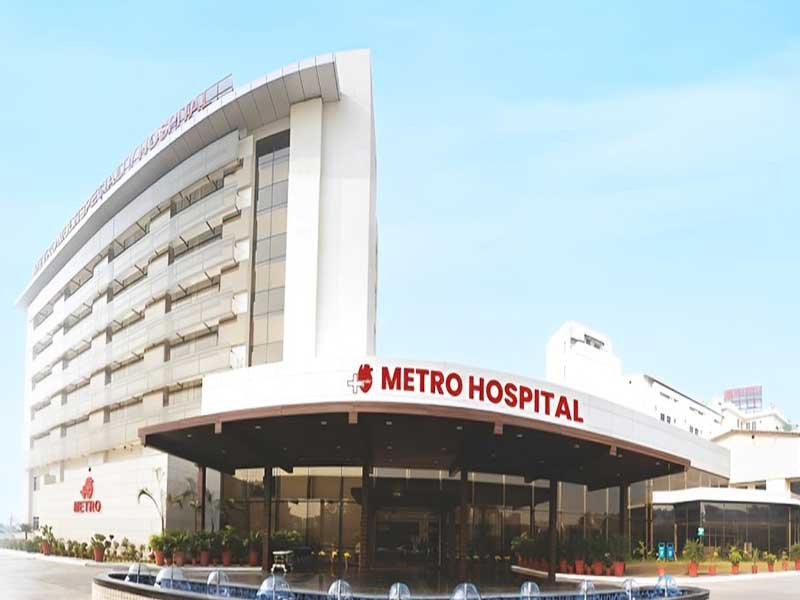Access affordable cystectomy in India with an experienced urologist. Benefit from advanced care and effective management at affordable cost as compared to other western countries.
Recovery Time
4 Weeks
Success Rate
98%
Hospital Stay
2 - 7 days
Treatment Type
Surgical
Home Treatments Urology Cystectomy
Looking for an affordable solution for a cystectomy procedure?
Here we got you covered!
The cost of cystectomy in India depends on the type of cyst and the method of removal; however, the average Cystectomy Cost in India is between 2500 and 7000 USD, which is less compared to Western countries.
So, if you want to know about the estimated cost and factors that might affect it, then this article will guide you to make an informed decision.
Cystectomy is a medical term for the surgical removal procedure of all or part of the urinary bladder, and it may also be rarely used to remove the cyst. However, the most common condition that requires the urinary bladder is bladder cancer.
There are two main types of bladder surgeries that doctors can perform. The first is called a partial cystectomy, where only a part of the bladder is removed. The second is a radical cystectomy, which is a more extensive surgery that involves removing the entire bladder, along with some nearby lymph nodes and other organs if they are affected by cancer.
The review of the tissue taken out during surgery to remove the bladder and nearby lymph nodes is important for assessing the stage of cancer. This information is crucial because it helps doctors decide on the next steps for treatment, ongoing care, and what the likely outcomes might be.

⦿ Hospital Infrastructure
The choice of the hospital plays a significant role in deciding the overall cost of cystectomy because internationally accredited hospitals may charge higher because of their advanced facilities, experienced medical staff, and advanced technology.
⦿ Surgeon’s Fee
Surgeon's fees depend on their expertise and reputation, which could impact the procedure cost. Highly qualified, experienced, and renowned surgeons might charge higher fees that contribute to the total cost.
⦿ Type of Cystectomy
The complications of the cystectomy procedure vary based on the condition that is being treated. Deficient cystectomy, radical cystectomy, and laparoscopic cystectomy are among the different types, each with its cost complication.
⦿ Medical Investigations
The pre-operative investigation includes diagnostics tests and imaging studies that are important to examine a patient’s overall health, and the Cystectomy Cost in India of these tests adds to the overall cystectomy expenses.
⦿ Postoperative Care
Post-surgery care includes hospital stays, medication, and follow-up consultations, and it contributes significantly to the total cost.
Post-surgery care, including hospital stay, medication, and follow-up consultations, contributes significantly to the total Cystectomy Cost in India. The duration of Hospitalization and the type of accommodation chosen can influence expenses.
The Cystectomy Cost in India is affordable for international patients as compared to western countries which include surgery cost, diagnostic tests, rehabilitation and other aspects which depend on the procedure.
Cost Component | Details | Cost in USD |
Pre-operative Consultation & Diagnosis | Consultations, X-rays, MRI scans, and blood tests. | 300 USD |
Surgery Costs | Includes type of surgery, surgeon fees, and hospital stay. | 2500 - 7000 USD |
Rehabilitation and Follow-up | Physiotherapy sessions, medications, supportive devices, and follow-up visits. |
Country | Cost Structure |
India | 2500 - 7000 USD |
United States | |
Germany | |
Turkey |
Key Takeaways
Affordable Treatment Cost
The Cystectomy Cost in India is affordable compared to other Western countries, which makes it a top destination for medical procedures for international patients seeking treatment at an affordable cost without compromising on quality care.
Advanced Medical Technology
Indian hospitals are equipped with the latest technologies and advancements that offer precise and accurate surgical procedures.
India is now becoming a popular destination for cystectomy because of a combination of factors like cost-effectiveness, advanced technologies, skilled surgeons, and so on. Here are some major factors that make India a preferred destination for international patients:
The Cystectomy Cost in India is affordable as compared to other Western countries so that international patients get their treatment done at half of the cost without compromising on the quality of care.
Indian hospitals are equipped with world-class medical infrastructure with advanced technologies and skilled surgeons, which ensures high-quality care.
Indian urologists are highly skilled and specialized in urology and bladder cancer treatment, following international protocols and using advanced techniques.
The Indian healthcare system is dedicated to procedure comprehensive care including pre- post operative support which can be significant benefit for patients undergoing major surgery.
It’s a surgical procedure that helps parents with the following conditions:

Many factors should be taken into consideration when determining the type of cystectomy to be performed, including age, overall health, baseline bladder function, and type of cancer.
This approach involves removing only a portion of the bladder and is performed for some benign and malignant tumors which is located in the bladder. However, you might be a candidate for partial cystectomy if you have a single tumor that is located near the dome or the top of the bladder, a tumor that doesn’t take over the muscle of the bladder.
Furthermore, a partial cystectomy may also be performed for the removal of tumors that have originated and spread from neighbouring organs, such as the colon.
It is a most commonly performed procedure for cancer that has invaded the muscle of the bladder. Under this process, the surgeon removes the bladder along with surrounding lymph nodes and other organs that contain cancer.
Tests | Description |
CT scans | It helps to examine the size, location, and extent of bladder tumors. |
Urine tests | It helps to identify bacteria and other germs present in urine, which may indicate a UTI. |
Cystoscopy | Usually, it helps to diagnose, monitor, and treat conditions that affect your bladder and urethra. |
Dos
Don’ts

Here are the general steps for an open cystectomy, which include:
It contains two types of approaches, which include:
In this approach, your surgeon will make several small cuts on your lower abdomen to reach out to the pelvic area and perform the surgery.
In this approach, the surgeon will sit on the console to give instructions and directions to the robotic hands and perform the surgery with the special surgical tools.
During the first six week after surgery you need to restrict some activities like lifting, driving, bathing and going back to work or school yet, you can take shower soon after surgery.
However, it takes time to recover, and if you have undergone an open surgery, then you might need to stay in the hospital for 2 to 7 days. With a minimally invasive approach, the hospital stay might be shorter.
Furthermore, before you leave the hospital, a nurse and other healthcare professionals will give you instructions about your wound care and guidelines for when to call your care team.
There are several alternatives to a cystectomy. Here are some given below:
Yes, it's a major surgery that involves the removal of the bladder and often requires reconstruction of the urinary system to divert urine flow.
Yes, you can live without a bladder, but you'll need a different way to store the urine that your kidneys create. If your doctor removes your bladder completely, you'll need some time to adjust as you learn how to manage this new way of going to the bathroom.

As it’s a complex procedure, it does have some risks as well, which include:
There are other risks linked to urinary diversion depending on the procedure, which include:
After surgery, you might need to stay in the hospital for 2 to 7 days, and the recovery might take up to 4 weeks.
The success rate of cystectomy is 98% in India, however the percentage is high due to experienced surgeons and advanced technologies.
Beds: 539
New Delhi
Beds: 230
New Delhi
Beds: 710
New Delhi
Beds: 650
New Delhi
Beds: 191
New Delhi
Beds: 310
New Delhi
Beds: 299
Gurugram
Beds: 380
New Delhi
Beds: 402
New Delhi
Beds: 1300+
Gurugram
Beds: 1000
New Delhi
Beds: 450
Faridabad
Beds: 675
New Delhi
Beds: 500
New Delhi
Beds: 400+
Faridabad

Max Super Speciality Hospital, Saket

Aakash Healthcare Super Speciality Hospital

Indraprastha Apollo Hospital

BLK Max Super Speciality Hospital

Dharamshila Narayana Superspeciality Hospital

Fortis Escorts Heart Institute

Fortis Memorial Research Institute

Manipal Hospital Dwarka

Max Super Speciality Hospital Shalimar Bagh

Medanta - The Medicity Hospital

Moolchand Kharaiti Ram Hospital

Sarvodaya Hospital

Sir Ganga Ram Hospital

Venkateshwar Hospital

Metro Heart Institute with Multispecialty
Experienced Urologist
India has some of the best urologists who are highly skilled and experienced, with over 20+ years in treating patients with bladder cancer or tumors.
JCI/NABH Accredited Hospitals
We are partnered with India’s top hospitals that are equipped with the latest technologies, such as robotics, machine learning, and advanced diagnostic and therapeutic tools that provide complete and personalised care for patients.
Additional Benefits
We respond quickly and provide accurate cost estimates. We help with medical visas and offer accommodation in India. You can schedule appointments with doctors more easily.
We also make your arrival in India simple. We arrange airport pickup, hotel transfers, and support during your hospital stay. This ensures a smooth experience during your treatment journey.
Cystectomy is a surgical procedure for patients with bladder tumors; however, it is a major surgery, and it has some major side effects as well. To know whether you’re eligible for it or not, you need to see your doctor, and they will run some tests to determine whether the surgery is needed or not.
Disclaimer
The information available in this article is for general information, and it does not provide exact cost estimates, so if you are willing to have a professional opinion on your concerns then Mejocare can connect you with some of the renowned doctors. So, why wait? Contact us now.

Medically Reviewed By
QualificationsMBBS, DTMU University, Georgia,Radiation Oncology Resident at Burdwan Medical College and HospitalDr. Aryan Malhotra is a skilled and caring doctor. He is a Radiation Oncology Resident at Burdwan Medical College and Hospital. He treats people with cancer and works closely with patients during their treatment.He completed his MBBS from David Tvildiani Medical University in Georgia. He has passed the USMLE... Read More
A cystectomy is important for people with bladder cancer that has reached the deeper layers of your bladder wall. It is also suitable for those at a high risk of such spread.
There are two main types of cystectomy: one is called a partial cystectomy, and the other is a radical cystectomy.
A cystectomy has important benefits in that it treats bladder cancer and other noncancerous problems that affect your bladder and even the urinary system.
After cystectomy, it is important to eat a balanced diet. You should focus on getting enough protein and calories to maintain your weight. Avoid spicy and high-fiber foods to reduce bloating
Yes, you may need more treatment after cystectomy. Many patients receive additional treatments like chemotherapy and radiation therapy, especially if the bladder cancer is severe.
The success rate of cystectomy in India is 98%.
After cystectomy, you might need to stay in the hospital for 7 days.
Yes, a lot of people continue to live active and happy lives after cystectomy.
Yes, a cystectomy is a major surgical procedure.
The complications of a cystectomy include:
Bleeding
Blood clots
Infection
Bowel complications
Scar tissue
Organ damage
Anesthesia risks.
Our care team can help you.
